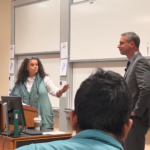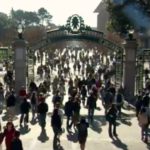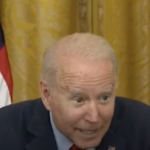Service to China
In a generally thorough but one-sided book, Honorable Survivor: Mao’s China, McCarthy’s America, and the Persecution of John S. Service, author Lynne Joiner makes the best case she can to defend the reputation of accused spy, John Stewart Service.
Service was born in China and, like his brother Richard, became a career Foreign Service Officer. Joiner devotes much of the book to her thesis that he was persecuted by Chiang Kai-Shek, the Nationalist Chinese secret police, American Ambassador to China Patrick J. Hurley, J. Edgar Hoover, the FBI, the Hearst newspapers, the Scripps-Howard newspapers, Secretary of State Dean Acheson, President Truman, Senators Joseph McCarthy and James Eastland, and former Congressman Dr. Walter Judd.
Service was one of the most outspoken of a clique of Foreign Service Officers who, with a few scholars and journalists, worked during World War II to create a role for communists in the Chinese government and who would have welcomed a complete communist takeover of China. Such a takeover eventually occurred with the victory of the tyrannical regime that killed more people than Hitler, Stalin, and Pol Pot combined. Service reported, based on his personal contacts with Mao Tse-tung and Chou En-lai in 1945, that the Chinese communists were not like other communists, were very democratic, and had no interest in allying themselves with the Soviet Union. He consistently criticized the Nationalist government of Chiang Kai-Shek and praised the communists.
The striking failure of the Joiner book is the way it deals with the Amerasia espionage case. The unabashedly pro-communist Amerasia magazine enthusiastically supported the Hitler-Stalin pact. Communist spy Joseph Bernstein, who had once worked for Amerasia, asked for the magazine’s help in 1945 in spying for the Soviet Union. The FBI recorded Amerasia’s editor and publisher Phillip Jaffe saying he saw nothing wrong with giving classified documents to Soviets.
The Office of Strategic Services found hundreds of top secret, secret, and confidential documents in Amerasia’s office, along with a dark room and copying equipment appropriate to espionage but not magazine publishing. Joiner mentions the copying equipment but fails to discuss its significance. Jaffe, a dedicated Marxist, was a major contributor to communist causes. Service says he was told that Jaffe was definitely not a Communist Party member. This may well have been the case because the Soviets tried to keep their espionage operation separate as far as possible from the Communist Party.
During World War II, Service associated with communist spies. Sol Adler, his friend and apartment mate in China, was one. Another, Chi Chau-ting, lived in the same small building. Service’s friend and advisor, Lauchlin Currie, was also a communist spy. Years later, Service spoke of the difficulty he had during World War II telling liberals and communists apart.
Service was at the communist headquarters in China on two occasions in 1944 and 1945. He returned to Washington, D.C., between these periods. He sent typewritten reports to the Army, the State Department, and Vice-President Henry Wallace. He classified them either secret or confidential depending on how sensitive they were. He kept personal carbon copies.
Service was arrested for espionage on June 6, 1945. He admitted providing eight to ten of the dozens of his secret and confidential reports found in Amerasia’s office, along with hundreds of other top secret, secret, and confidential documents. Jaffe said that 19 of the documents came from Service. Many were supplied by State Department employee Emmanuel S. Larsen, who was arrested with Service. A third State Department employee probably supplied others. Service was never convicted of espionage. The Truman administration was anxious to sweep the Amerasia affair under the rug. He was discharged from the State Department by Secretary of State Dean Acheson but eventually reinstated by the Supreme Court. Several years after his reinstatement, he retired realizing that he would never be appointed to a high position. He probably provided informal advice to Nixon concerning his trip to China.
Despite author Lynne Joiner’s efforts, Honorable Survivor fails to document that John Stewart Service was anything but a traitorous spy who deserved to be punished. He helped the Chinese communists. He supplied classified documents to a Soviet espionage operation. Although, according to the author, he may not have known the extent of the Soviet espionage activities and may have eventually realized that he was wrong, the loss of his job and security clearance are hardly excessive penalties for the tremendous harm he did. In fact, the author’s point of view is that John Stewart Service was “persecuted.” While the Service biography is worth reading for its wealth of information, the bias of the author needs to be kept in mind by the reader.
The Confederate Lawyer is copyright (c) 2010 by Charles Mills and the Fitzgerald Griffin Foundation, http://www.fgfbooks.com. All rights reserved.
Charles G. Mills is the Judge Advocate or general counsel for the New York State American Legion. He has 40 years of experience in many trial and appellate courts and has published several articles about the law.
Charles Mills photo and biographical sketch.




